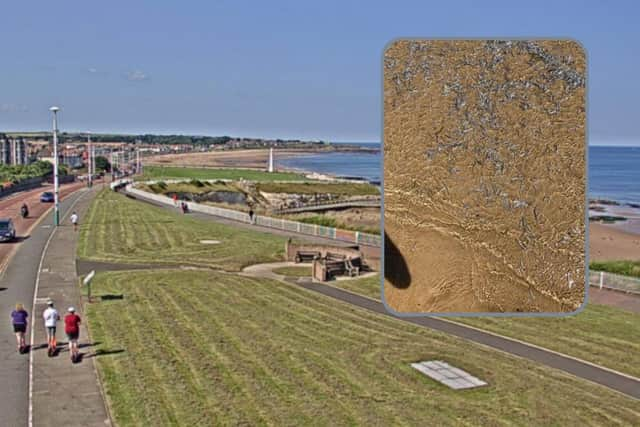Hundreds of dead sand eels wash up on Sunderland's beaches after hottest day of 2021
and live on Freeview channel 276
The sand eels have been seen at Whitburn Bents and Roker after hatching from the beach, with shoals seen by visitors as they take a paddle and walk along the tideline – although some have told the Echo hundreds of them have not survived.
On Saturday temperatures reached up to 28C, with temperatures expected to climb to 25C on Sunday.
Advertisement
Hide AdAdvertisement
Hide AdReader Ayla Malia shared a photo she took of the fish at Whitburn and said she found many which were dead.


Beachgoers on Sunday morning found hundreds of the dead fish washed up on the shore line.
The Wildlife Trust say the fish, which cover many species and feed on plankton, can reach around 20cm in length and are an important part of our marine ecosystem.
The fish – which are not eels, but look like them – can be seen in large shoals near the seabed in summer months and are especially abundant in the North Sea, are expected to continue to decline as the water gets warmer.
Advertisement
Hide AdAdvertisement
Hide AdThe organisation says: “They are distinctively slender with a pointed snout - giving them an eel-like shape.
"Between April and September they swim in large shoals close to the seabed and will burrow into the sand to escape predators.
"In the winter months, they bury themselves up to 50cm in the sand.
"They are an incredibly important part of the marine ecosystem and are a favourite food of puffins, harbour porpoises, terns, pollack and mackerel.”
